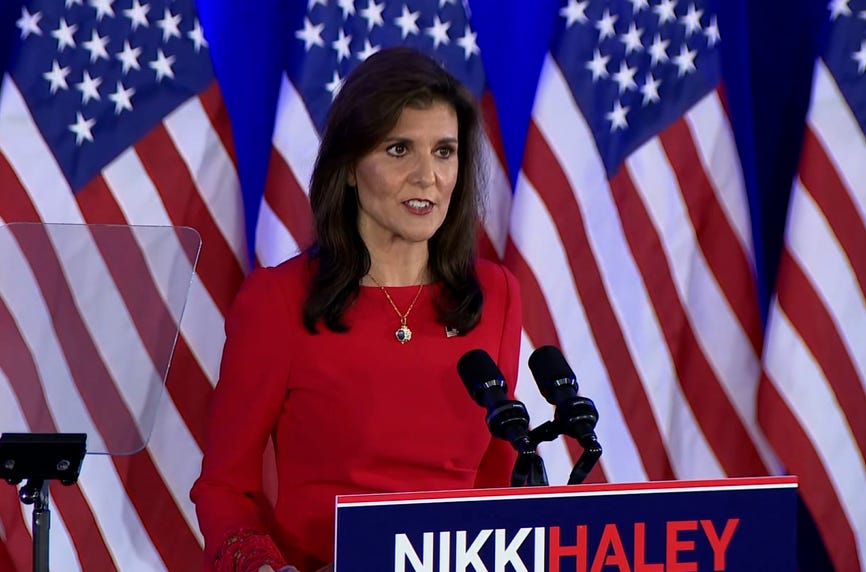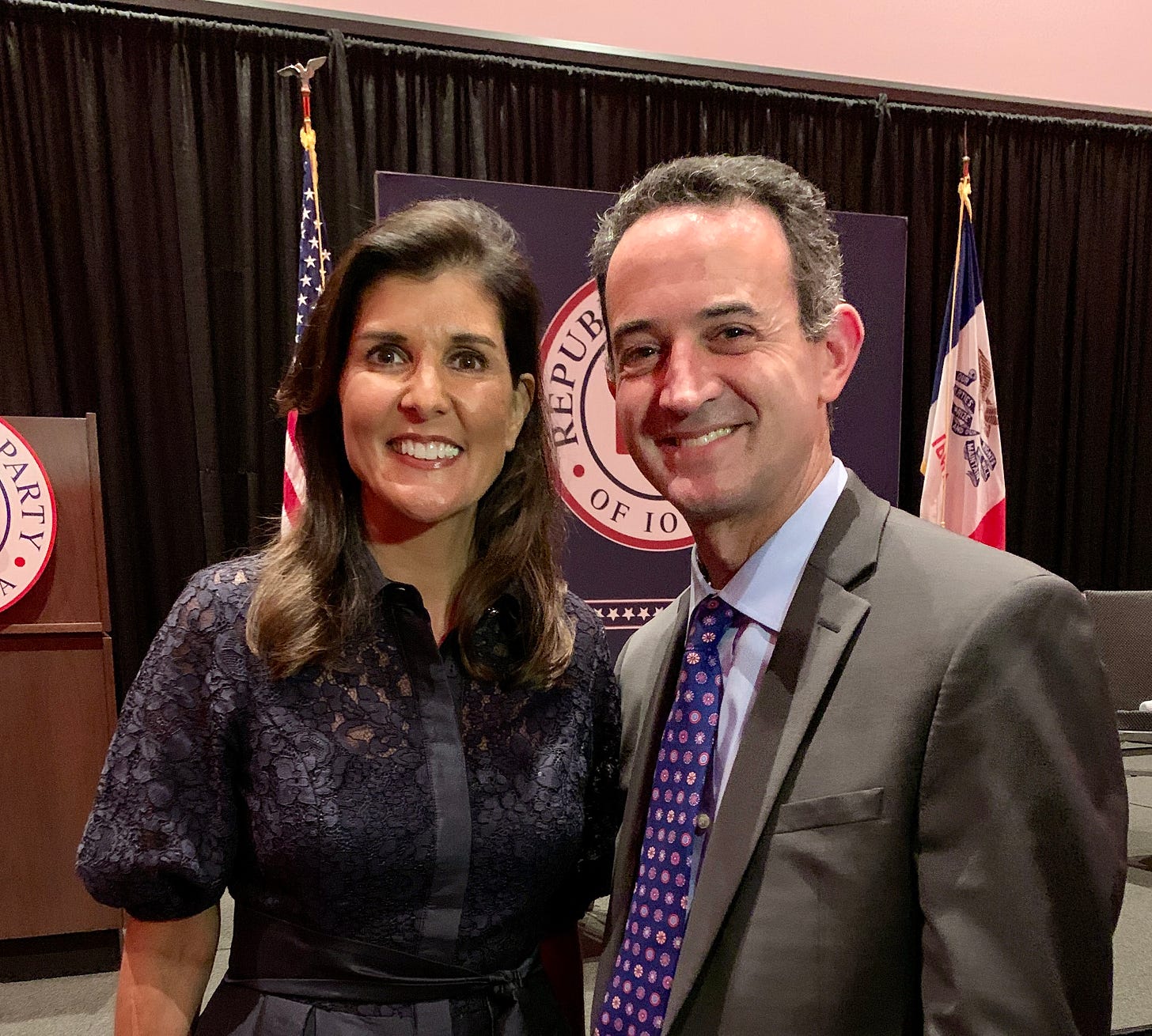Darling Nikki: Thank you for a funky time
Haley did what no one could do in 2016: she consolidated the anti-Trump vote. It wasn't enough.
Let me start with a relevant data point: The photo below is from the first time I met Nikki Haley. It was taken in Des Moines, Iowa, in June of 2021, where she had just spoken at a state Republican Party fundraising dinner. 2021. Notably, Donald Trump’s status in the Republican Party was not entirely clear at that point. He was still a dominant figure, but he’d been relatively quiet in the months following the January 6th insurrection and his ban from many social media sites. It was not obvious at the time that he was going to run for president again.
I saw Haley speak the next day to a Young Republicans group in Story County, where she took several questions from the audience. One of the attendees asked her, “Are we now the party of Trump? And should we be?” Her answer was pretty telling [I’m paraphrasing]: “Donald Trump is a part of the party and we should welcome that, and we should be willing to criticize him when he’s wrong, as I did on January 6th.”
Fast forward nearly three years. Haley has just suspended a campaign that did pretty well against a candidate who, by late last year, was broadly seen as the inevitable nominee. She beat him in only two primaries — DC and Vermont — but pulled around 40% or better in several states, including New Hampshire and South Carolina, performing in a way that we would generally see as impressive and threatening to an incumbent.
Importantly, surveys (including my survey of county chairs) showed that nearly all of the people supporting Haley expected Trump to become the nominee. That is, the people backing Haley and donating large sums to her campaign were not delusional; they saw the writing on the wall and still wanted to make a point of backing her, even after Trump barred them from the MAGA camp, whatever that means.
One of the concerns raised in the earlier parts of this presidential nomination cycle was that it would be a repeat of 2016: Trump was beatable but the other candidates were splitting the non-Trump part of the Republican electorate. Haley did what no one was really capable of doing in 2016 — she consolidated the anti-Trump vote, and she did it without much help from any of the other candidates. And it turned out to be not enough; the Trump faction of the party is the majority faction.
As I’ve noted here, there are significant factional divisions between Haley and Trump supporters that go well beyond their candidate preferences. They disagree on the role of the US in the world, about the use of faith in making political decisions, about the role of party leaders, and more. Joe Biden has already reached out to Haley’s supporters to appeal to them to join his coalition rather than Trump’s.
Meanwhile, Haley has notably declined to endorse Trump, at least for now. In her concession statement, she said of Trump, “I congratulate him and wish him well. I wish anyone well who would be our president.” (I assume even Trump can hear the diss in that.) And she said it was up to Trump to win over her supporters.
Just judging from recent history, I’d say the number of Haley backers who don’t vote for Trump in November will be small, if not negligible. Possibly the best example of this comes from 2008, when a large number of Hillary Clinton backers (the PUMAs - Party Unity My Ass), upset by her loss to Barack Obama in the primaries and her treatment by the Democratic Party, threatened to vote for John McCain in the fall. Almost none actually did. It is a time-honored feature of US politics that the long general election campaign reminds the nominee’s fellow partisans of all the things they like about their party and all the things they despise in the other one.
Again, though, the number is not zero. I’ve spoken to a number of prominent Republicans (especially in New Hampshire) who either declined to vote or voted for a third party candidate in 2016 because they could not support Donald Trump, and actually voted for Biden in 2020. It’s not clear what they’ll do this year, but they saw Haley as their way back to supporting their party, and that path is gone now.







But, life is just a party primary challenge and party primary challenges aren’t meant to last...
Bold Prince reference!